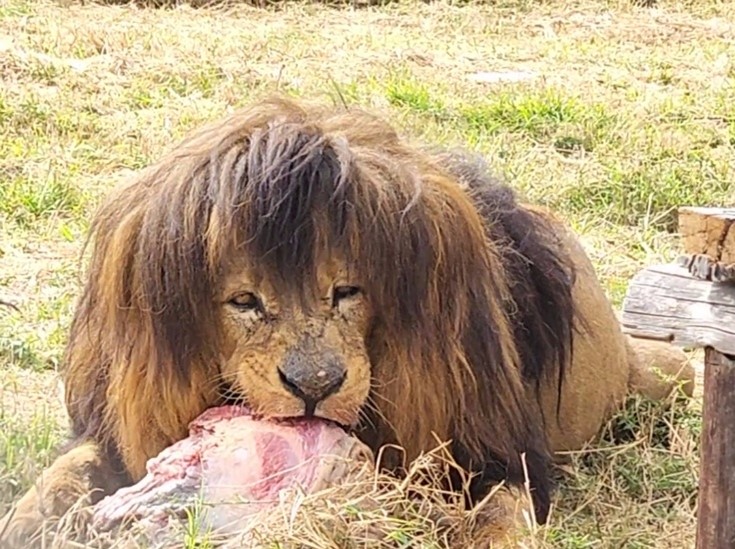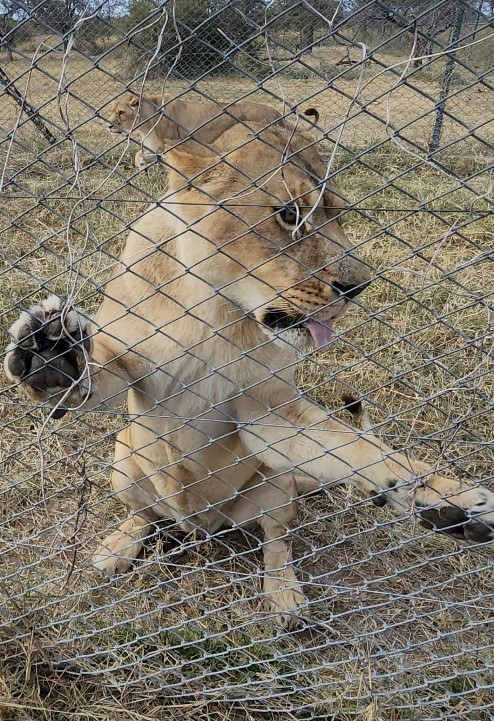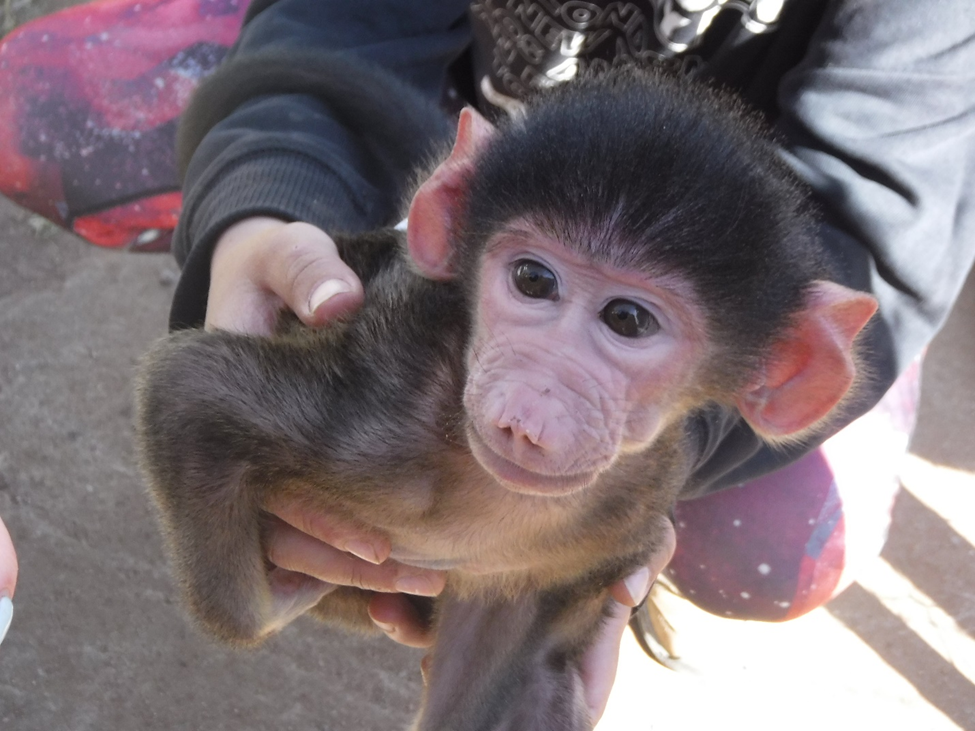After my two weeks in Zimbabwe I feel like I learned a lot about that animals there and how they are cared for.
For this post I will be discussing how they medicate and feed the lions at one of the conservation parks I was at along with some fun facts about them.
For the lions, if they need medications they will lace the meat that they are giving them with the desired medication. I got to witness and assist in a deworming feeding where the dewormer was injected into the meat and then fed to the lions with a fence in between. The lioness’ were very aggressive with their feedings and one in particular which was the alpha of the set of lioness’ was very interested in all of the meat and actually ended up with two doses of dewormer rather than the one since she took the one from another lioness. But this was not a concern since the amount that was given was not harmful if they received an extra.
Ivermectin was also applied as a drench, to the lioness’ to aid in the control of ticks and extoparasites. This was pulled up in a syringe and the sprayed onto their backs when the opportunity arised. This was difficult since they were suspicious of what we were doing and were not turning around to allow us to spray they backs with the medication. It took multiple tries but eventually we got them all drenched.
I also experienced a feeding of male lions which was quite the sight. The me lions when feeding together are very aggressive and will race to the carcass to feed. The alpha male will almost always make it there first and guard the food. The others will get to feed to but most of the time they will run elsewhere to feed. They will even challenge us watching them while they feed since they believe that maybe we will take their food away.
The carcass that the conservation park receives is from local farmers that had cattle culled for whatever reason and need it discarded. So the park will go and grab it so that it is used.
A fun fact I learned while in Zimbabwe was that male lions do not grow their manes immediately. It takes them 4-5 years to have a full mane of hair. I thought this was interesting since in the movies that was never really explained. As I had mentioned in another post “shumba” is lion in the native language in Zimbabwe.
– Amber , SPC Zimbabwe Vet Tech Program, June 2022
Participating in a wildlife veterinary technician program such as the one in Zimbabwe was an absolute dream come true. The game drives, snare sweeps, deworming, vaccination, feeding, counting, hours spent travelling, monitoring, touring, interacting with the locals, and taking in every moment was more than I had thought was possible during the two weeks spent in Zimbabwe and would absolutely love to go back to help more wildlife.
Having the opportunity to speak with local veterinarians to compare medical protocols in Zimbabwe versus America was such an enlightening experience. While this helped me realize how far ahead American veterinary medicine is in comparison, I learned to be grateful for what we have access to in order to help the patients. The difference that access leads to how medicine is performed was a fascinating comparison to be made across multiple conversations.
There is one area for improvement that I can think of. Other than the trip being entirely too short, having more access to the two main languages to learn some local language before going would have been helpful. Though we did not need to know the local languages to do administer medicine to the animals, this may have heled with the language barrier between us and the locals.
– Arienne , SPC Zimbabwe Vet Tech Program, June 2022
One of the most impactful places we visited during our time in Zimbabwe was a small rehabilitation sanctuary called Free To Be Wild. One of my educational goals is to be a veterinary technician at a zoo or a wildlife sanctuary such as the one we visited. We were given a tour of the place and were able to interact with some of the animals there. Being able to feed zebras, interact with the vulture, listen to their rehabilitation stories was highly inspiring to continue with school to achieve the education required to work in a place such as this one. One of the animals that was particularly fun to interact with was a one-month-old baboon named Bodie whose mother was killed resulting in him being orphaned. One a bit older the sanctuary staff will attempt to introduce Bodie to the troop and hopefully release the troop back into the wild. All of the animals were very well cared for and the passion the employees have for these animals is extremely obvious as evidenced by the enclosures, animal excitement, and gross health exhibited by all of the animals.
– Arienne , SPC Zimbabwe Vet Tech Program, June 2022



